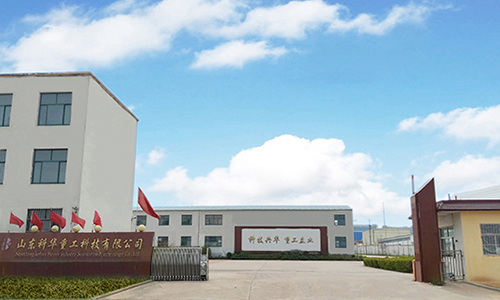The United States and other countries will then decide how to put more pressure on China to ease restrictions on rare earth exports. U.S. trade officials said the ruling in a lawsuit over Chinese raw material export restrictions could help in how to act against China’s restrictions on rare earth exports. U.S. Trade Representative Ron Kirk called the WTO ruling a huge victory for the United States. The WTO ruling could spark similar actions by the United States and Europe on Chinese rare earth exports.
In a statement shortly after the ruling, EU trade commissioner Karel DeGucht urged China to act. "Now China must remove these export restrictions as soon as possible, and I hope that China will make policy adjustments to the entire export system, including rare earths, to comply with WTO regulations," De Gucht said.
In fact, since 2009, the United States, the European Union, Japan and Mexico have been accusing China of restricting rare earth exports in violation of WTO rules and China's WTO commitments. The Ministry of Commerce of China has publicly stated many times that in order to ensure the demand for rare earths in the international market, China has been facing the pressure of environmental resources for many years, and has strived to maintain a considerable amount of rare earth exports. With about 30% of the world's rare earth reserves, China provides 80% to 90% of the world's rare earth production and trade.
The Chinese side emphasizes that the main purpose of implementing restrictions on rare earth exports is to strengthen environmental protection and protect exhausted resources. The export quota restriction measures adopted by China are implemented in parallel in the three links of mining, production and export processing in accordance with the rules of the World Trade Organization. The core purpose is to protect the environment. On May 20, 2011, the Chinese Ministry of Commerce and the General Administration of Customs jointly issued an announcement to include rare earth ferroalloys in the management of rare earth export quota licenses.
Gong Baihua, a professor at the Law School of Fudan University and business director of the Shanghai WTO Affairs Consulting Center, said that the export tax issue involved in this case is not a rule in the WTO to restrict members from taking export tax measures. But China made a special commitment in its WTO commitments: Except for the 84 products listed in the annex to the agreement (most of which are metal products or other raw materials), China cannot take export tax measures.
Since this case involves China's special commitment when it joined the WTO, there are "congenital deficiencies", so in addition to the positive defense, the Chinese side also tried to cite an exception to the rule, that is, the "general exception" of Article 20 of the GATT. However, the WTO Appellate Body upheld the panel's ruling that Article 20 of GATT cannot be applied to the defense of export tariffs. reporter.
Gong Baihua said that this may adversely affect future cases and put us in a disadvantageous position in future responses, such as rare earth export restrictions that may be submitted to the WTO. He believes that when China insists on restricting the export of rare earths, it should timely adjust the application of the policy to domestic producers and foreign exports, so that after the WTO dispute occurs, the exception clause for environmental protection should be invoked. "The premise, of course, is to see whether the Appellate Body supports the exception of Article 20 of the GATT to the relevant provisions of the Protocol on China's Accession to the WTO in the Raw Materials Case."
Influences
China's resource export policy faces huge challenges
Experts said that in fact, the current WTO rules have almost no specific principle constraints on export tariffs, but China's commitments when it joined the WTO constitute part of the WTO rules that China should abide by. It can be seen that the developed countries have paid enough strategic attention to the global market pattern of resource products as early as when I joined the WTO, and strategically grasped the development trend of my country's resource product exports.
Many experts interviewed by reporters from the Economic Information Daily said that this ruling is undoubtedly a huge challenge to China's raw material export policy. According to industry sources, the relevant ministries and commissions of the state have already begun to formulate a new policy for the export of resource products. It is widely speculated in the industry that the direction of the New Deal should be to flexibly adjust the export restrictions and at the same time transfer the restrictions from the export link to the domestic production link.
Hu Tao, the former head of the environmental and trade expert group of the Ministry of Environmental Protection, said that my country's current measures to restrict the export of "two high and one capital" products in line with macroeconomic regulation and energy conservation and emission reduction goals are facing the challenges of WTO rules and China's WTO commitments. . In order to reduce external criticism, it is recommended to cancel export quotas, levy high export border adjustment environmental taxes, and at the same time effectively collect environmental consumption taxes for domestic users at the same rate; and continuously improve the environmental management system, levy high excessive pollution charges.
Hu Tao said that my country should pay close attention to trade-related resource and environmental risks and pressures, and should continue to promote and apply existing export restrictions on the basis of following WTO rules and WTO commitments, especially on the basis of simultaneously implementing policies to restrict domestic production or consumption. , to meet the challenges of economic globalization to my country's resources and environment.
Tu Xinquan, deputy dean of the China WTO Research Institute at the University of International Business and Economics, told the "Economic Information Daily" reporter that out of the need to protect the environment and exhaust natural resources, China will still scientifically manage resource products in accordance with its own principles and goals. Appropriate adjustments can be made on this basis, such as adjusting the policy to be equally applicable to domestic sales and foreign sales, for example, strengthening environmental protection requirements from the domestic production and consumption links to fill the gap in export policy.
Jia Genliang, a professor at the School of Economics of Renmin University of China, said that the various difficulties faced by my country's rare earth and other strategic resources reflect that my country's current resource utilization method based on the development strategy of "two ends, big in and big out" is unsustainable, and it is urgent to make major efforts as soon as possible. Adjustment, and gradually realize the strategic shift from putting important resources such as rare earths into the international economic cycle to investing them into the domestic economic cycle. (Economic Information Daily)

 ABOUTShandong Kehua Heavy Industry Technology Co., Ltd., formerly known as Linqu County Kehua Automatic Control Equipment Factory, was founded in April 1993. On January 10, 2007, the company changed its name to Weifang Kehua Automatic Control Equipment Co. Ltd
ABOUTShandong Kehua Heavy Industry Technology Co., Ltd., formerly known as Linqu County Kehua Automatic Control Equipment Factory, was founded in April 1993. On January 10, 2007, the company changed its name to Weifang Kehua Automatic Control Equipment Co. Ltd PRODUCTThe company's main products are: electronic belt scales, spiral scales, loss-in-weight scales, quantitative feeders, batching systems, hoists and other heavy machinery and equipment. Products are widely used in chemical, cement, steel, mining, thermoelect
PRODUCTThe company's main products are: electronic belt scales, spiral scales, loss-in-weight scales, quantitative feeders, batching systems, hoists and other heavy machinery and equipment. Products are widely used in chemical, cement, steel, mining, thermoelect CONTACTIt is the eternal pursuit of the company to create famous brand products, establish a first-class enterprise, and lead the mainstream of the industry.
CONTACTIt is the eternal pursuit of the company to create famous brand products, establish a first-class enterprise, and lead the mainstream of the industry. NEWSThe company adheres to the operating principles of leading technology and winning by quality, and has close cooperative relations with many colleges and universities and scientific research institutions.
NEWSThe company adheres to the operating principles of leading technology and winning by quality, and has close cooperative relations with many colleges and universities and scientific research institutions.
